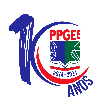Banca de DEFESA: ALESSANDRA NEVES SILVA
Uma banca de DEFESA de MESTRADO foi cadastrada pelo programa.DISCENTE : ALESSANDRA NEVES SILVA
DATA : 30/10/2019
HORA: 15:00
LOCAL: CAMPUS RONDON SALA DE REUNIÃO DO ICED
TÍTULO:
TEACHING PROFESSIONAL DEVELOPMENT IN A COLLABORATIVE COMMUNITY: an analysis of the Study and Research Group FORMAZON / UFOPA
PALAVRAS-CHAVES:
Training, Continuing Professional Development, Investigative Communities, Collaborative Groups.
PÁGINAS: 210
GRANDE ÁREA: Ciências Humanas
ÁREA: Educação
RESUMO:
This research aims to analyze the contributions of a collaborative academic community - FORMAZON - which integrates school teachers, academic teachers and future teachers from different areas, for the professional development of its participants. The research sought to answer the following question: How does a collaborative academic community contribute to the professional development of its participants? As a theoretical basis for data production, discussion and analysis, we associate the concepts of teacher professional development (DAY, 2001; MARCELO GARCIA, 1999); communities with investigative posture (COCHRAN-SMITH; LYTLE, 1999, 2009), collaborative groups (FIORENTINI, 2004, 2012, 2013); CRECCI; FIORENTINI; 2013, 2018) to the Social Theory of Learning and the notion of Community of Practice (LAVE, 2013; WENGER, 2008, 2013; WENGER, MCDERMOTT; SNYDER, 2002). For the design of the qualitative research (BOGDAN; BICKLEN, 1994) we adopted a case study (YIN, 2001; ALVES MAZZOTI, 2006), which investigated the interaction in the community in a particular and real way. For this we used, as data source, the participant observation, the field notes and audio recordings, which were collected in 12 meetings during 2017 and 2018. In the data analysis, we used the thematic analysis proposed by Guest, Macqueen and Namey. (2011). Eighteen participants participated in the research, including 02 university professors, 01 master, 02 academics, 07 master's students and 06 school teachers. The results show that FORMAZON, as a collaborative academic community, has provided the development of its participants as it adopts collaboration in the process of building research and practices; also enables reflection and research on the practice, promotes the sharing of learning, drives the investigative posture at the interface between school and university, and encourages personal and professional maturation. However, the study shows challenges regarding the expansion of the investigative posture related to the written production and the permanent collaboration between the university and the school. We conclude that collaborative groups can foster teacher education actions, as they can be catalysts for the continuing professional development of teachers.
MEMBROS DA BANCA:
Presidente - 1278761 - SOLANGE HELENA XIMENES ROCHA
Interno - 1321886 - NILTON VARELA HITOTUZI
Interna - 1030394 - TANIA SUELY AZEVEDO BRASILEIRO
Externa ao Programa - 1782909 - CLAUDIA SILVA DE CASTRO
Externo à Instituição - LICURGO PEIXOTO DE BRITO - UFPA




